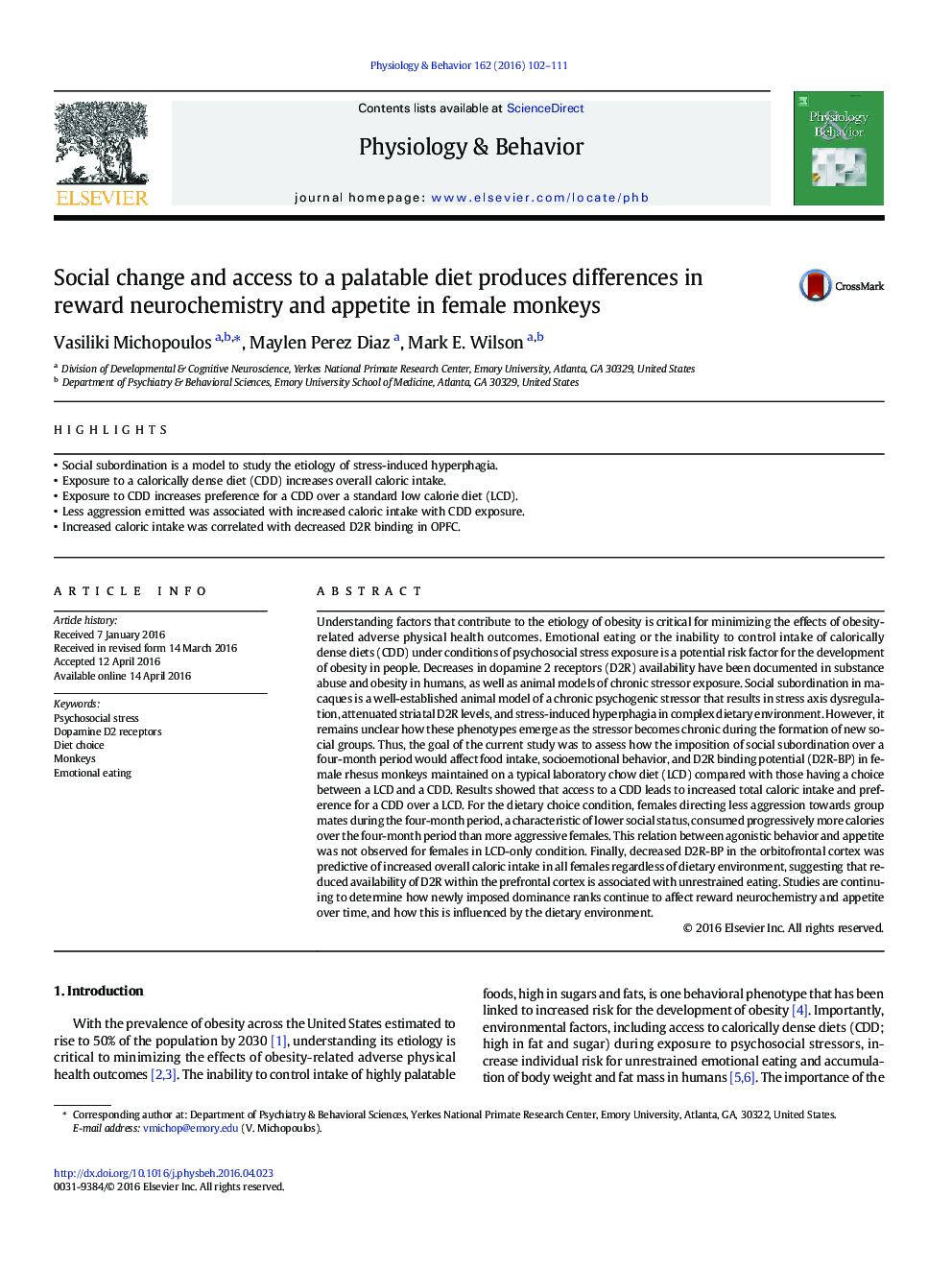| کد مقاله | کد نشریه | سال انتشار | مقاله انگلیسی | نسخه تمام متن |
|---|---|---|---|---|
| 2843906 | 1571156 | 2016 | 10 صفحه PDF | دانلود رایگان |
• Social subordination is a model to study the etiology of stress-induced hyperphagia.
• Exposure to a calorically dense diet (CDD) increases overall caloric intake.
• Exposure to CDD increases preference for a CDD over a standard low calorie diet (LCD).
• Less aggression emitted was associated with increased caloric intake with CDD exposure.
• Increased caloric intake was correlated with decreased D2R binding in OPFC.
Understanding factors that contribute to the etiology of obesity is critical for minimizing the effects of obesity-related adverse physical health outcomes. Emotional eating or the inability to control intake of calorically dense diets (CDD) under conditions of psychosocial stress exposure is a potential risk factor for the development of obesity in people. Decreases in dopamine 2 receptors (D2R) availability have been documented in substance abuse and obesity in humans, as well as animal models of chronic stressor exposure. Social subordination in macaques is a well-established animal model of a chronic psychogenic stressor that results in stress axis dysregulation, attenuated striatal D2R levels, and stress-induced hyperphagia in complex dietary environment. However, it remains unclear how these phenotypes emerge as the stressor becomes chronic during the formation of new social groups. Thus, the goal of the current study was to assess how the imposition of social subordination over a four-month period would affect food intake, socioemotional behavior, and D2R binding potential (D2R-BP) in female rhesus monkeys maintained on a typical laboratory chow diet (LCD) compared with those having a choice between a LCD and a CDD. Results showed that access to a CDD leads to increased total caloric intake and preference for a CDD over a LCD. For the dietary choice condition, females directing less aggression towards group mates during the four-month period, a characteristic of lower social status, consumed progressively more calories over the four-month period than more aggressive females. This relation between agonistic behavior and appetite was not observed for females in LCD-only condition. Finally, decreased D2R-BP in the orbitofrontal cortex was predictive of increased overall caloric intake in all females regardless of dietary environment, suggesting that reduced availability of D2R within the prefrontal cortex is associated with unrestrained eating. Studies are continuing to determine how newly imposed dominance ranks continue to affect reward neurochemistry and appetite over time, and how this is influenced by the dietary environment.
Journal: Physiology & Behavior - Volume 162, 1 August 2016, Pages 102–111
